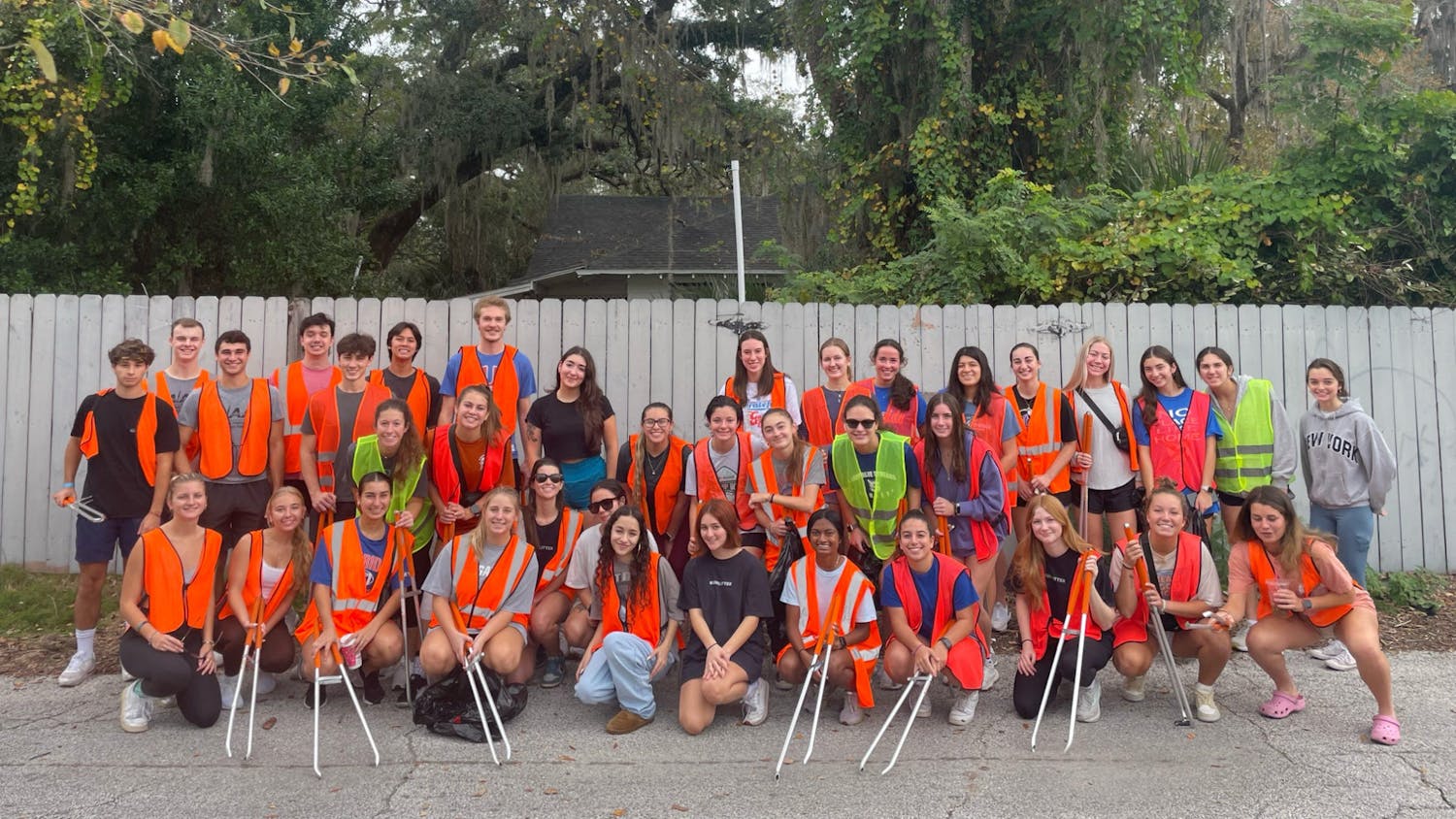Julie Cohen, a 26-year-old recent graduate of Florida State University, is new to Gainesville and looking for friends.
She likes having fun, reading, shopping and watching “True Blood.”
She’s single, blond, attractive, and interested in friendship and dating.
Julie’s not very different than most 20-somethings in town, except for one small detail — she doesn’t exist.
This Friday, theaters across the country are debuting “The Social Network,” the true story of how the world-changing, Myspace-destroying, time-draining, mega-site Facebook came to be. In honor of the movie, we decided to do our own little social experiment to see just how friendly the Facebook world really is.
This is where Julie comes in.
We know we broke the rules (sorry, Mark). Fake profiles violate Facebook policy, and it says so loud and clear in the site’s “Statement of Rights and Responsibilities.”
“You will not provide any false personal information on Facebook,” the guidelines read, “or create an account for anyone other than yourself without permission.”
What can I say: My editors put me up to it. But with all due respect Mr. Zuckerberg, our “social experiment” was only intended to shed light on what we believe will go down in history as the largest cultural contribution of our generation (so pretty-please-with-wall-posts-on-top don’t delete my account).
Since its inception in February 2004, Facebook has been on a path toward world domination. Originally intended for college students, Facebook is now used by everyone from your little sister to your 74-year-old grandma.
According to a recent article by the Washington Post, about two-thirds of Facebook’s membership is older than 26, and its fastest growing demographic outside the United States is middle-aged women.
As more people find themselves spending more time staring at their newsfeeds, we have to ask ourselves: Why?
“Facebook … is a website sort of constructed to take advantage of the fact that you care about your friends,” said Gary Ritzenthaler, a graduate communications student who teaches a journalism class about social media. His class asks students to take a closer and harder look at social media sites.
But while Facebook touts bringing us closer to the people we cherish, some people have more than 300 friends — and it’s hard to believe they’re all besties.
“The term ‘friend’ has totally sort of been co-opted by Facebook. It means a lot of different things,” Ritzenthaler said. “We have these connections to people, and what do they mean? We don’t really know the answer to that.”
Julie, thus, was born to test the waters. Her purpose in her short life was to see how willing we really are to open ourselves up to strangers online. To accept their friendship requests and, like it’s nothing, share with them our birthdays, phone numbers, pictures, who we’re dating, who we’re related to, what we like to do, where we are, where we will be – almost everything.
The original thought was no one would buy it. No one is going to add someone with one picture and no friends that they’ve never seen before.
But that was very wrong.
Within a day, Julie had more than 80 friends. She updated her status, left comments on threads and liked different posts. She began getting invited to events and left messages on the walls — and she was getting responses.
She started getting messages from random people, telling her they’d seen her out over the weekend, asking when she’d be back in their town, what she’d been up to since high school. A few asked straightforwardly where they’d met before, but most just went with the flow.
It was bizarre and shocking, and it was time to find out why people were so welcoming.
“At first, I thought she was one of those spam people, but then I saw she was friends with some of my friends,” said Alan Lipp, a friend of Julie’s, upon finding out she wasn’t real. He’d assumed he must have met her before but didn’t remember.
“I am still going to add cute girls, but they will need to provide proof of their physical reality, most easily done on a date,” Lipp said.
That random request might not be just a cute boy or girl. Maybe it’s a company boss trying to get a better idea about a potential employee. Maybe it’s a bully looking to trick someone into sharing personal details. Or maybe it’s just some creep trying to look at hot college chicks and blend in among them.
Julie is gone now, her flimsy presence a mere blip in the land of social media. My “Frankenstein” days are over, and I won’t be making any more fake profiles (Pinky promise, Mark!).
And if you exist, deepest apologies to the real Julie Cohen.






